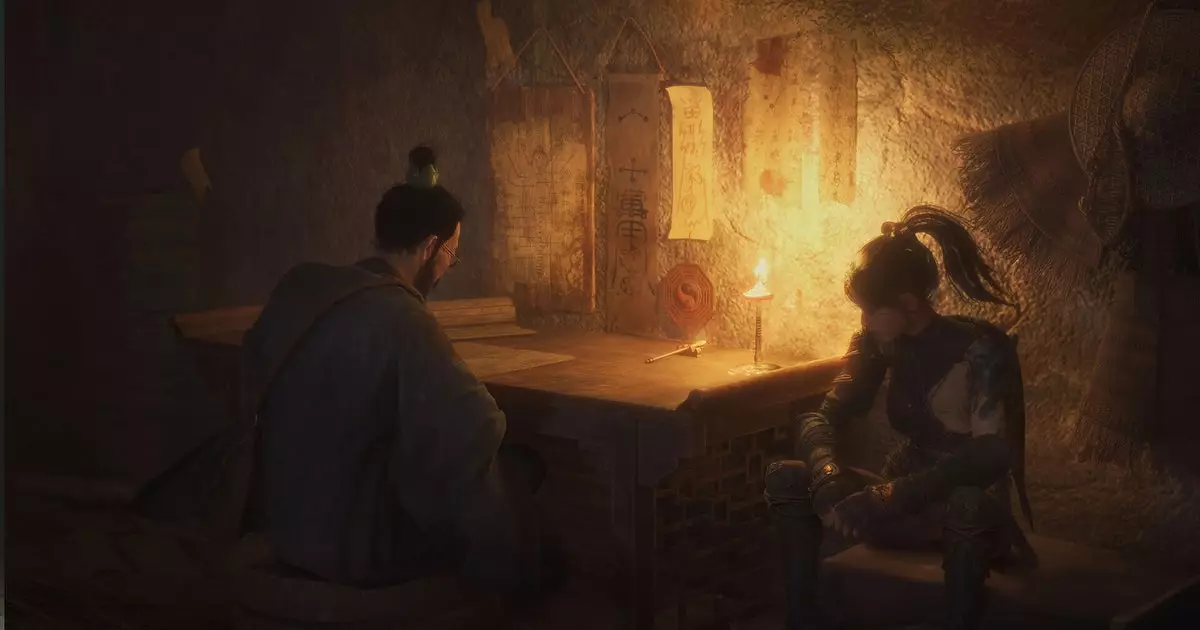In recent years, the gaming industry has witnessed a growing tension between developers’ creative control and players’ desire for authentic experiences. The pushback against censorship, whether it stems from cultural sensitivities or external pressures, has profound consequences on a game’s narrative and challenge level. For instance, the modification of Wuchang: Fallen Feathers illustrates how developer decisions—prompted by external influences—can alter core gameplay mechanics, sometimes sacrificing the integrity that originally drew players in. When bosses become unkillable or storylines are subtly changed, it erodes the immersive quality that makes the game memorable. Players no longer feel like active participants but rather spectators of a canned story, robbed of agency. This ceding of control compromises the foundational essence of interactive storytelling, reducing a once-challenging, culturally rich game into a sanitized, less engaging experience.
The Role of Modding Communities as Guardians of Authentic Experience
In defense of player freedom, modding communities have emerged as vital arbiters of gaming authenticity. As exemplified by the dedicated modders who reverse recent patches, these communities embody resistance against censorship and unwarranted game alterations. The case of Wuchang’s patch 1.5 exemplifies this dynamic—when official updates stifle challenge and story depth, passionate players and modders step in to restore the original vision. The ‘Rollback censorship patch’ stands as a testament to how community-driven initiatives preserve the nuanced storytelling and gameplay mechanics that developers may neglect or intentionally alter. Such mods empower players to reclaim their experience, choosing what kind of game they want to engage with—whether it’s the brutal challenge of bosses or the immersive storytelling intact from earlier versions. Constraint-by developers may be inevitable, but community action demonstrates that the power of player agency remains resilient against monopolistic control.
Challenges and Ethics of Modding in the Modern Gaming Landscape
While modding provides an avenue for preserving game authenticity, it also raises complex questions regarding legality, ethics, and the future of game development. Many developers prefer tight control over their intellectual property, citing concerns about stability, security, and commercial interests. Yet, the widespread acceptance and active support of modding communities suggest a paradox: players demand creative freedom while developers seek storehouse exclusivity. Reverting patches, as with Wuchang, is technically arduous—requiring manual adjustments to game files or workarounds like disabling auto-updates—which underscores the frustration and technical literacy gap faced by players. Furthermore, reliance on mods can fragment the player base, with some experiencing different versions and content. It becomes a moral debate: should developers embrace modding as a means to extend their game’s lifespan and deepen engagement, or see it as a breach of their rights? Ultimately, a more flexible approach—offering official rollback options or mod support—could reconcile these interests, fostering trust and community investment. Until then, players will continue to take matters into their own hands, risking stability for the sake of preserving what makes a game worth playing.
Beyond the Patch: The Future of Player-Centric Game Design
Looking ahead, the industry must reconcile the tension between developer authority and player autonomy. Progressive publishers are beginning to recognize that player preference for immersive, challenge-rich experiences cannot be dismissed without risking alienation. Offering beta versions, official rollback mechanisms, and modding support not only broadens a game’s appeal but also demonstrates respect for the community’s voice. The Wuchang scenario underscores a broader truth: players crave authentic storytelling and challenging gameplay, elements that are often sacrificed during reactive or censor-driven updates. A developer’s willingness to listen and adapt—perhaps by actively supporting the mod community—could lead to a more sustainable model of game development. Such a shift would place players at the heart of the experience, turning passive consumers into active partners. The future of gaming depends on embracing this collaborative spirit, valuing freedom of expression, and defending the integrity of the stories and challenges that define gaming’s appeal. The power to shape one’s virtual experience is arguably what makes gaming a truly remarkable medium.

